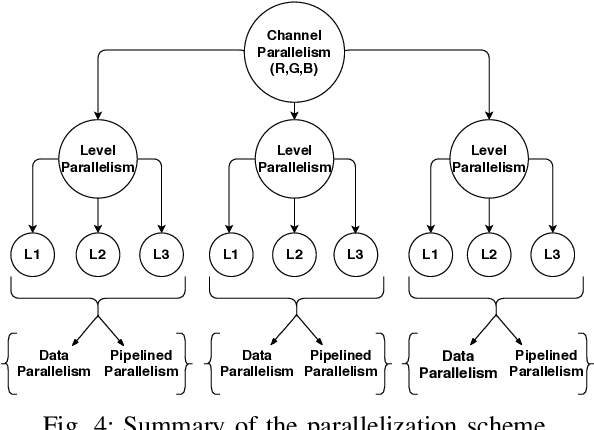Accelerating local laplacian filters on FPGAs
Paper and Code
Feb 18, 2024



Images when processed using various enhancement techniques often lead to edge degradation and other unwanted artifacts such as halos. These artifacts pose a major problem for photographic applications where they can denude the quality of an image. There is a plethora of edge-aware techniques proposed in the field of image processing. However, these require the application of complex optimization or post-processing methods. Local Laplacian Filtering is an edge-aware image processing technique that involves the construction of simple Gaussian and Laplacian pyramids. This technique can be successfully applied for detail smoothing, detail enhancement, tone mapping and inverse tone mapping of an image while keeping it artifact-free. The problem though with this approach is that it is computationally expensive. Hence, parallelization schemes using multi-core CPUs and GPUs have been proposed. As is well known, they are not power-efficient, and a well-designed hardware architecture on an FPGA can do better on the performance per watt metric. In this paper, we propose a hardware accelerator, which exploits fully the available parallelism in the Local Laplacian Filtering algorithm, while minimizing the utilization of on-chip FPGA resources. On Virtex-7 FPGA, we obtain a 7.5x speed-up to process a 1 MB image when compared to an optimized baseline CPU implementation. To the best of our knowledge, we are not aware of any other hardware accelerators proposed in the research literature for the Local Laplacian Filtering problem.
 Add to Chrome
Add to Chrome Add to Firefox
Add to Firefox Add to Edge
Add to Edge